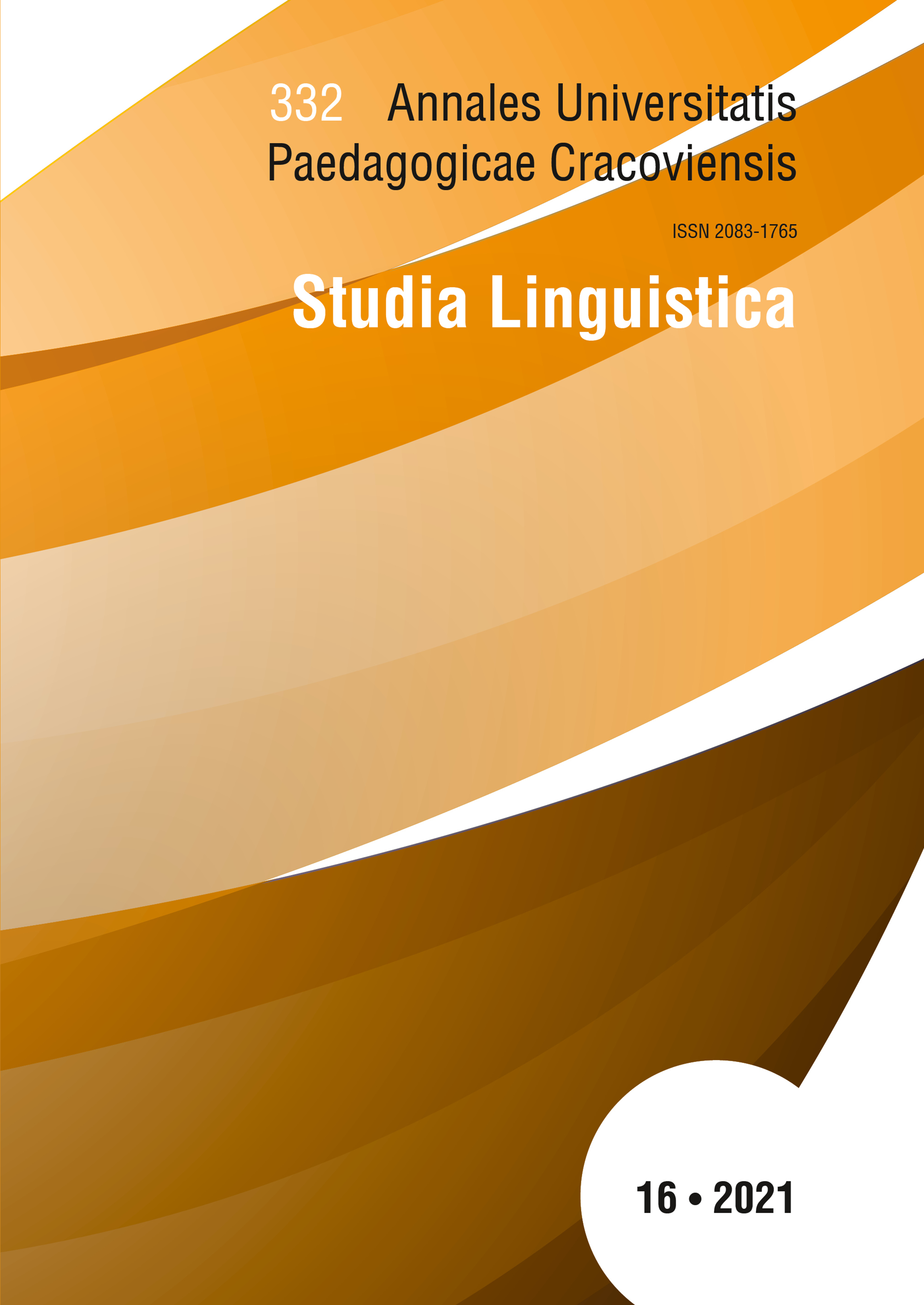Humility and Being Humble in the Polish language (in the light of collocation, phraseological and paremical units)
Main Article Content
Abstract
The main intention in the presentation of Humility and Being Humble in the Old and Contemporary Polish language is to reveal the formation and consolidation of these concepts in the minds of language users. The subject of the review are multi-word units - collocation, phraseology and paremism. In the image of Humility and Being Humble, two fundamental planes are distinguished. The multifaceted fulfillment of the manifestations of a human attitude boils down to: an attitude towards humility, its formation, its manifestation and the attitude expressed; in the case of humility - to acquire it, form it, manifest it, act in harmony with it, and obey something in humility. You express the nature of humility as the source of something else, the perpetration, effects, coexistence with certain concepts; humility determines its character and consequences.
Downloads
Article Details

This work is licensed under a Creative Commons Attribution-NonCommercial-NoDerivatives 4.0 International License.
Author, submitting a text to the editorial board of the journal “Annales Universitatis Paedagogicae Cracoviensis. Studia Linguistica", certifies that the content of the article has not been published so far and that the work does not violate in any way the copyright or related rights of other person, as well as other rights of third parties, and that no one's rights to the work (or any part thereof) have been missed. After signing the contract, the property rights to the published materials are transferred to the Scientific Publisher of the University of the National Education Commission, Krakow.
“Annales Universitatis Paedagogicae Cracoviensis. Studia Linguistica” is an open access journal, and all its content is made available free of charge to users and institutions under the Creative Commons CC-BY-NC-ND 4.0 license (attribution, non-commercial use, no derivative works). Under this license, the authors agree that their work may be lawfully reused for any purpose, except for commercial purposes, without the prior consent of the author or publisher. Everyone can read, download, copy, print, distribute and process these works, provided that the author's marking and the original publication place are correct. Published texts may not be used to create derivative works (e.g. to translate and publish in another language without the consent of the publisher). This is in line with the BOAI (Budapest Open Access Initiative) definition. "Studia Linguistica" does not charge for submitting or processing articles.
References
Bańkowski A., 2000, Etymologiczny słownik języka polskiego, t. 1, Warszawa.
Google Scholar
Bernard z Clairvaux, 1991, O stopniach pokory i pychy, Kraków.
Google Scholar
Boryś W., 2005, Słownik etymologiczny języka polskiego, Kraków.
Google Scholar
Grzegorczyk A., 1989, Etyka w doświadczeniu wewnętrznym, Warszawa.
Google Scholar
Grzegorczykowa R., 1990, Wprowadzenie do semantyki językoznawczej, Warszawa.
Google Scholar
Grzegorczykowa R., 1993, POKORA, PYCHA i pojęcia pokrewne, [w:] Nazwy wartości. Studia leksykalno-semantyczne I, red. J. Bartmiński, M. Mazurkiewicz-Brzozowska, Lublin, s. 23–39.
Google Scholar
Janukowicz M., 2008, Pedagogiczny kontekst pokory, Częstochowa.
Google Scholar
Majkrzak H., 1999, Chrześcijańska pokora, Kraków.
Google Scholar
Müldner-Nieckowski P., 2007, Frazeologia poszerzona, Warszawa.
Google Scholar
Minikowska T., 1995, Czy pokora znaczy uniżoność, uległość?, „Acta Universitatis Nicolai Copernici. Filologia Polska” XXVII. Nauki Humanistyczno-Społeczne 190, s. 105–139.
Google Scholar
Przybylska R., 2020, Kolokacje a analiza semantyczna wyrazu, „LingVaria” XV (2), s. 43–51.
Google Scholar
Puzynina J., 1992, Język wartości, Warszawa.
Google Scholar
Zaron Z., 1985, Wybrane pojęcia etyczne w analizie semantycznej (Kochaj bliźniego swego), Wrocław–Warszawa–Kraków–Gdańsk–Łódź.
Google Scholar
Zatorski W., 2008, Pokora, Kraków.
Google Scholar
Zgółka T., 1991, Język jako filtr aksjologiczny, [w:] Zagadnienia komunikacji językowej dzieci i młodzieży. Materiały ogólnopolskiej konferencji: „Zróżnicowanie języka dzieci i młodzieży z uwzględnieniem czynników środowiskowych, kulturowych, regionalnych i etnicznych”, Warszawa 21–22 października 1991 r., red. J. Porayski-Pomsta, Warszawa, s. 9–18.
Google Scholar
